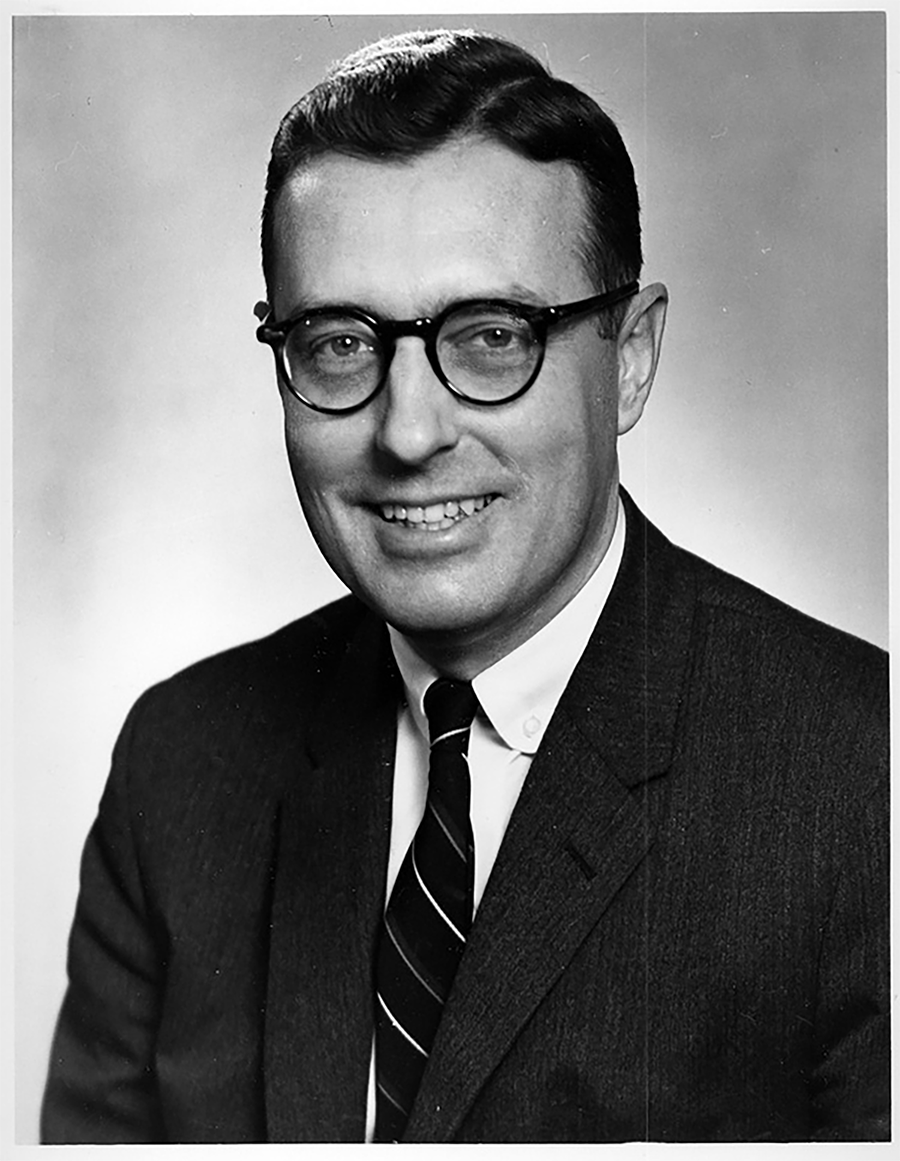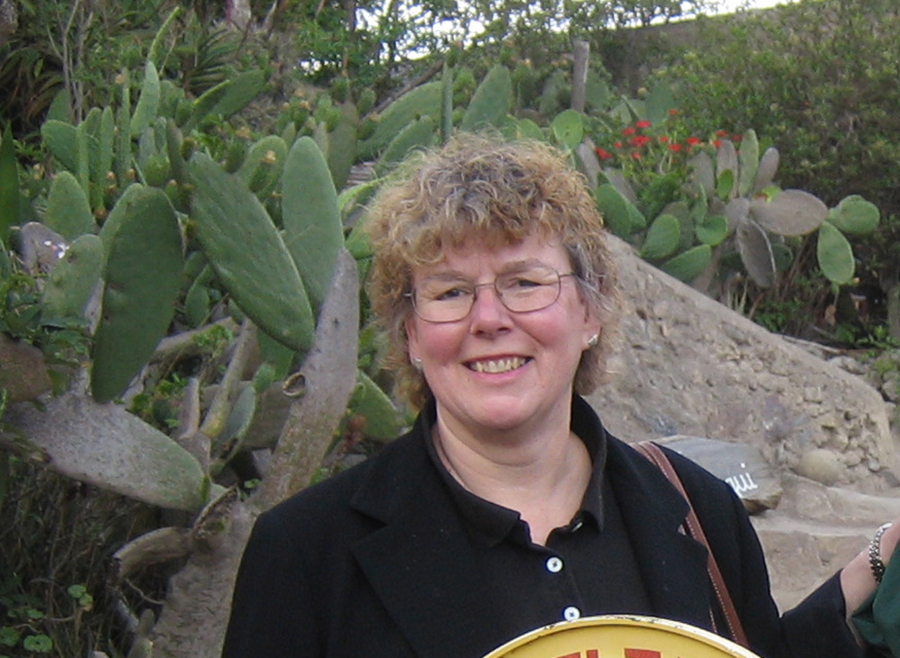Thomas Hughes (1925–2023), Jo L. Husbands-Rosenberg (1948–2022)
March 2023
By Daryl G. Kimball
Thomas Hughes (1925–2023)
 Thomas Hughes, a long-time U.S. Department of State official in the 1960s who later became president of the Carnegie Endowment for International Peace and a founding member of the board of directors of the Arms Control Association, died January 2 in Washington at the age of 97.
Thomas Hughes, a long-time U.S. Department of State official in the 1960s who later became president of the Carnegie Endowment for International Peace and a founding member of the board of directors of the Arms Control Association, died January 2 in Washington at the age of 97.
Growing up in Minnesota in the 1940s, he became involved with the Student Federalists, a movement promoting world government. As its national president, he traveled and spoke widely and attended the founding of the United Nations in San Francisco in 1945. After graduating from Carleton College in 1947 with a degree in government relations, he spent the next two years as a Rhodes Scholar at Oxford University and then graduated from Yale Law School in 1952.
Hughes served briefly with the Air Force as a lawyer, then became a senior member of the staff of Senator Hubert Humphrey (D-Minn.). He later worked for Representative Chester Bowles (D-Conn.), who in 1961 was appointed deputy secretary of state in the Kennedy administration.
Bowles asked Hughes to join him as a senior adviser at the State Department and later appointed him to be director of the State Department Bureau of Intelligence and Research. As director, Hughes was soon at the center of hot-button foreign policy concerns from China to the Soviet Union to the growing U.S. military presence in Vietnam.
Hughes and his team at the bureau were skeptical about the efficacy of the proposed buildup of U.S. forces planned by the Johnson administration shortly after the 1964 election. Hughes' analysis of the situation caught the attention and won the support of Humphrey, who had since become vice president. In February 1965, Humphrey wrote the president a private memorandum warning against getting "embroiled deeper in fighting with Vietnam over the next few months."
The memo was prescient. It predicted that "political opposition will steadily mount. It will underwrite all the negativism and disillusionment which we already have about foreign involvement generally—with direct spill-over effects politically for all the Democratic internationalist programs to which we are committed—AID, UN, disarmament, and activist world policies generally."
Hughes continued to serve as bureau director through the end of the Johnson years and into the Nixon administration. After leaving the State Department, Hughes in 1971 became president of the Carnegie Endowment, a role he held for two decades, enabling him to update and reshape the institution into one of the premier think tanks in the world.
At the Carnegie Endowment, Hughes also served as the chair of the editorial committee for Foreign Policy magazine and supported the establishment of new projects, including the Carnegie Endowment's program on arms control, which became an independent membership organization, the Arms Control Association, in 1972. Hughes was among the founding board members of the association, serving into the late 1990s and providing support, advice, and inspiration for its director and for the organization long after he retired from active involvement.
Jo L. Husbands-Rosenberg (1948–2022)
 Jo L. Husbands-Rosenberg passed away at age 74 on November 30 in Washington after a distinguished career as a scholar and researcher on the intersection of science, technology, and arms control in global security. Shedied after a long fight against a range of illnesses.
Jo L. Husbands-Rosenberg passed away at age 74 on November 30 in Washington after a distinguished career as a scholar and researcher on the intersection of science, technology, and arms control in global security. Shedied after a long fight against a range of illnesses.
Through top-notch scholarship and quiet persistence, Husbands shattered a number of barriers for women in her field. Born in Puyallup, Washington, near Tacoma, she earned a doctorate in political science from the University of Minnesota and a master’s degree in international public policy from Johns Hopkins University.
From 1982 to 1986, Husbands was deputy director of the Committee for National Security, a Washington-based nongovernmental organization; and for much of her career, she was an adjunct professor in Georgetown University's security studies program. She was best known, however, for her work as a senior project director at the National Academies of Science (NAS), which she joined in 1986.
From 1986 to 1991, she was director of the NAS project on democratization and a senior research associate for its Committee on International Conflict and Cooperation. Later, she served for 15 years as the NAS director of the Committee on International Security and Arms Control (CISAC) and its working group on biological weapons control.
As an NAS staff researcher and study director, Husbands was the linchpin for numerous NAS workshops, studies, and reports on U.S. nuclear weapons policy, nuclear war, biosecurity, and the international security implications of climate change.
For example, in 1990 she co-edited the two-volume work Behavior, Society, and Nuclear War, which examined the behavioral and social phenomena underlying the execution of nuclear decision-making and policy, including the behavior of decision makers during crises, the pressure of public opinion, the causes of war among great powers, and the processes of international security negotiation.
In 1997 she coordinated the pathbreaking CISAC study “The Future of U.S. Nuclear Weapons Policy,” which recommended the use of nuclear weapons be limited to a core mission of deterring the use of nuclear weapons by others. The study also called for a program of progressive constraints to reduce Russian and U.S. nuclear arsenals to 1,000 total warheads each and then, if security conditions permit, to a few hundred warheads, provided adequate verification procedures were put in place.
Husbands later served as the NAS representative on the multinational biosecurity working group of the InterAcademy Partnership network, which involved extended trips to engage with other scientific colleagues working on international security challenges in Europe, Russia, Latin America, Africa, and Asia. She anchored NAS workshops and studies on the biosecurity implications of developments in the life sciences, especially as they relate to the Biological Weapons Convention. She also was involved in the 2015 study by a NAS task force into "potential risks and benefits of gain-of-function research" on infectious diseases following an alarming outbreak of the avian flu.
Husbands was a member of the board of directors of the Arms Control Association from 1999 to 2002. She also was a strong supporter of Women in International Security (WIIS). As a member of that organization’s advisory board, she was part of a WIIS summer symposiums series that brought together young leaders from around the world to discuss the complex dynamic between globalization and security. Donations to the Dr. Jo L. Husbands Memorial Fund will support the WIIS Next Generation Scholars Program.
